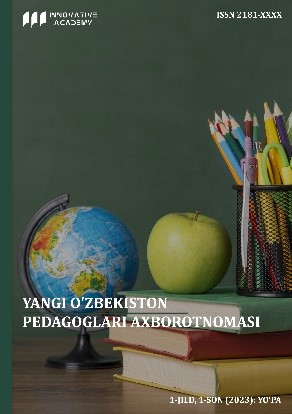USING MUSIC AND SONGS TO TEACH FOREIGN LANGUAGES IN TERMSOF CHILDREN
Main Article Content
Abstract:
This scientific article informs about the importance, impact and different reasons of using songs on teaching EFL classes and also ways to use songs in EFL classroom in terms of children.
Article Details
How to Cite:
References:
Daniels. M, (2003). Using a signed language as a foreign language for kindergarten students.
Loewy, J.V (2004). Integrating music, language and the voice in music therapy.
Hatasa, Y.A (2002). The effect of differential timing in the introduction of Japanese syllabaries on early second language development in Japan.
Heidari-Shahreza, M.A, & Moinzadeh, M. (2012). Teaching word stress patterns of English using musically-simulated technique.
Pakirdinova, S. (2023). ZAMONAVIY TILSHUNOSLIKDA REKLAMA MATNI VA UNING O’ZIGA XOS XUSUSISYATLARI. Talqin va tadqiqotlar, 1(19).
Hashimova, N., & Sattorov, T. (2021). USAGE OF ENGLISH MILITARY TERMINOLOGIES AS A NEUTRAL AND COLLOQUIAL VOCABULARY. CURRENT RESEARCH JOURNAL OF PHILOLOGICAL SCIENCES (2767-3758), 2(11), 162-167.
Mirzayev, A., & Oripova, S. (2022). COMMUNICATIVE METHOD–A NEW APPROACH IN THE PRACTICE OF TEACHING FOREIGN LANGUAGE. Science and innovation, 1(B6), 778-783.
Abdumutaljonovna, P. S. (2022). Main Characteristics of Advertising Discourse in Modern Linguistics. Texas Journal of Multidisciplinary Studies, 9, 173-176.
Gafurova, N. I. (2021). Structural-semantical classification of construction terms in English and Uzbek languages. ACADEMICIA: An International Multidisciplinary Research Journal, 11(5), 571-575.

